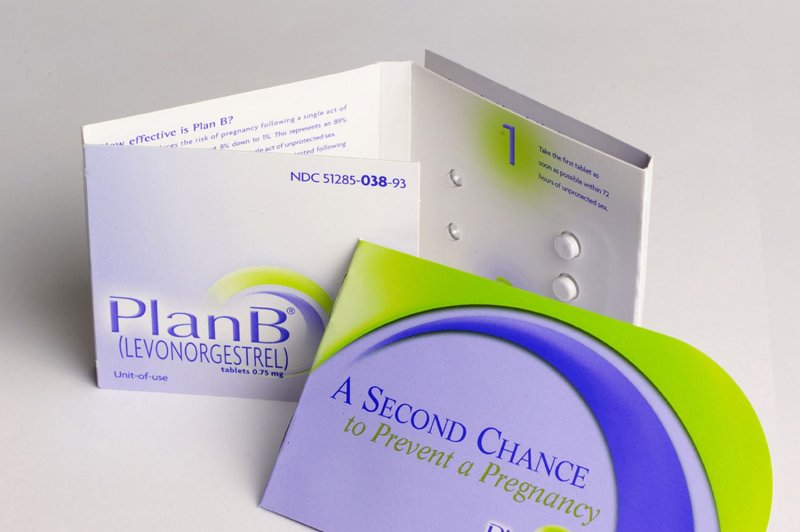CVS, Rite Aid, Amazon and other retailers have placed limits on the purchases of emergency contraception in the wake of the Supreme Court's decision to overturn Roe vs. Wade. File Photo by UPI |
License Photo
June 28 (UPI) -- Some major pharmacy chains and other retailers have placed limits on purchases of emergency contraception due to increased demand in the wake of the Supreme Court's decision to overturn Roe vs. Wade.
Matt Blanchette, senior manager of retail communications at CVS Pharmacy, told CNN that although the pharmacy chain has "ample supply" of contraceptive pill brands Plan B and Aftera, it is limiting purchases to three per customer "to ensure equitable access and consistent supply on store shelves."
Rite Aid also implemented a similar limit on purchases of contraceptive pills.
"Due to increased demand, at this time we are limiting purchases of Plan B contraceptive pills to three per customer," Alicja Wojczyk, senior manager of external communications for Rite Aid told CNN.
Amazon also confirmed to CNBC that it had placed a limit of three units per week on emergency contraceptive pills.
A review of pills on Amazon showed that Plan B is limited to three units per customer while a listing for a generic version of the drug, called My Choice, allowed 30 units per customer.
Walmart has said that many of its products purchased online have limits that can change "during times of fluctuating demand" but purchases of emergency contraceptive pills were not currently being limited.
Emergency contraceptive pills, which are also referred to as "morning after pills," can be purchased over-the-counter without an ID or prescription.
They typically prevent pregnancy by stopping the release of an egg from the ovaries, preventing a sperm from fertilizing an egg or stopping a fertilized egg from attaching to the womb and are meant to be taken up to three days after unprotected sex.
They differ from abortion pills, which require a prescription and can be used effectively within the first 10 weeks of pregnancy.
"Using (emergency contraception) does not cause an abortion. An abortion ends an existing pregnancy. EC prevents pregnancy from occurring. EC must be used soon after unprotected sexual intercourse to be effective. It does not work if pregnancy has already occurred," the American College of Obstetricians and Gynecologists said.
On Tuesday, Health Secretary Xavier Becerra said the Department of Health and Human Services is working to make sure states cannot ban medication abortion, which is protected under federal law for cases of rape, incest and when the mother's life is at risk.
The Supreme Court on Friday voted 6-3 to overturn its 1973 opinion in Roe vs. Wade, which legalized abortion nationwide, eliminating the federally protected right to abortion procedures and states looking to restrict access to the medical procedure are expected to move quickly to criminalize it.
The decision triggered laws in more than a dozen states to partially or fully ban abortion, while other states such as California have taken steps to bolster protections of reproductive rights.















